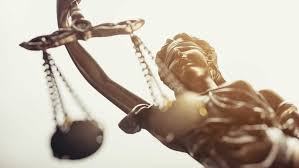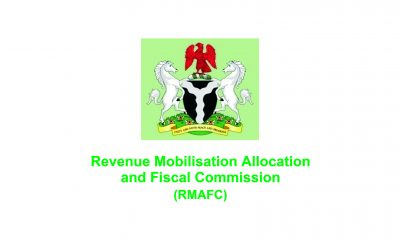Opinion
Lavishness In A Season Of Want
As the generality of Nigerians continue to grill under harsh economic conditions, officials of the federal government appear focused at extracting utmost official entittlements to the point of extravagance. This is notwithstanding Nigeria’s financial constraints and the public out-cries that recently led to nation-wide protests and demands for better governance. Thankfully, the much-feared protests ended without much instability. But in view of the litany of demands submitted to the federal government by various groups of protesters, this should be a time of deep, sober reflections on governance shortfalls in Nigeria. Rather than continue to engage in lavish spendings for its officials while ordinary citizens face daily hunger and insecurity, it is adviseable that government directs national resources towards addressing demanding social issues.
The federal government’s rationale at prioritising in this critical time, the expenditure of $150 million (about N240 billion) on additional presidential aircraft is therefore baffling. This is more so, considering that the Boeing B737-700(BBJ) presidential jet which dutifully served all past administrations, from Gen. Olusegun Obasanjo (rtd) to Gen. Muhammadu Buhari (rtd), is still very fit. Since May, 2023, when President Bola Ahmed Tinubu took over the mantle of leadership, this administration has severally appealed to Nigerians to make sacrifices by enduring the hardships caused by the sudden removal of energy subsidies and other disruptive policies, but it appears the officials themselves are excluded from tasting the prescriptions of austerity recommended to ‘fellow Nigerians.’
The first significant provocation came during the 2023 supplementary budget of N2.17 trillion, in which Mr President proposed N5 billion for the procurement of a presidential yacht. Even as the National Assembly later declined the request publicly, following massive uproar, sources reveal that the yacht had already been delivered. For a national budget financed mainly by loans, reports also say the president has discarded the state-of-the-art, exortic presidential car, Mercedes Maybach S Class, that served his predecessors, for an armoured Cadillac Escalade at a cost of N995 million, while as at May, 2024 when the administration marked its one year in office, about N3.7 billion had already been spent on vehicles and tyres alone, out of the N40.62 billion allocated for the state house, a separate $38 million expended to renovate the presidential fleet, and N1.5 billion allocated for vehicles for the unconstitutional office of the First Lady.
Vice President Kashim Shettima is also not left out from the spoil, considering the N21 billion expenditure for his Abuja residence alone. According to reports, members of the National Assembly are also enjoying extravagazas with luxurious vehicles and other largesse being doled out. The 360 members of the House of Representatives in particular, got Sport Utility Vehicles each worth about N160 million, amounting to a whooping total of N57.6 billion, some members reportedly opting for the cash, while a government that came on-board on the mantra of curtailling expensive government subsidies that for years dragged the nation’s growth, turned around to splash N90 billion to subsidise the 2024 Hajj pilgrimage to the Kingdom of Saudi Arabia.
Sadly, all these lavish expenditures are taking place in a country where due to paucity of funds many economic roads and other critical national infrastructure are comatose, national universities are starved of research funds, national agro-potentials are under-utilised, struggling industries die under energy starvation, and the average worker is inhumanly under-paid, while critical gadgets and welfare needed by security personnel who are daily overwhelmed by rising insurgency, are scarcely provided. However, of all the profligacies, the expenditure of $150 million on 15-year old, third-hand additional aircraft, is so far the most provocative, and humiliating for Nigeria’s national image, even as the plane became embroiled in embarrassing seizures over national debts, that set a stranded Mr President to oscillate between France and Nigeria.
According to reports, “Nigeria’s newly acquired presidential aircraft, an Airbus A330-200 with registration number 5N-FGA, was manufactured 15 years ago, in November, 2009.” It was initially purchased by Midroc Aviation of Saudi Arabia who operated it for 12 years with a VIP configuration, registered as VP-CAC. In 2021 Midroc sold it to Switzerland-based AMAC Aerospace before Nigeria recently acquired it at a cost of $100 million, and spent additional $50 million for gadget retrofits at Toulouse in France. Nigeria shyly took delivery on Sunday, August 18, 2024, as the aircraft’s third owner. On its first outing however, it got entangled in embarrassing spotlights and publicity, when an aggrieved Chinese company swooped on it alongside two other presidential aircrafts – a Dassault Falcon 7X and a Boeing 737.
Quite hillariously, a spokesperson of the Chinese firm said, Nigeria was later granted use of the seized Airbus 330 because Nigerian officials pleaded that French President, Emmanuel Macron, had earlier been promised a lift alongside Nigeria’s President Tinubu to a scheduled meeting. One wonders if it is not an irony, that a president whose much poorer country, that does not produce even a spring of an aircraft, could afford to offer free rides to one whose country manufactures and maintains aircrafts? Which brings us to reflect on the economic wisdom, or otherwise, of acquiring fleets of aircrafts. Mr Macron, possibly, may have choosed to feed-off Nigeria’s unwise decisions, to save his country the burden of funding his own presidential ride.
It is indeed expensive to run aircrafts. The Airbus A300-200 in particular, consumes a tank capacity of 139,090 litres of aviation fuel for a flight range of 13,450 Km. At £1.05 current price per litre of the Jet A1 fuel, 139,090 litres translates to £146,044.50 per full tank, which at N2,082.09/£, is over N304 million. At about 10.671 Km flight distance between Nigeria and the US for example, a round-trip would require more refuelling. The huge burden of running air fleet is the reason many Nigerians call on the presidency to cut down on the frequency of its foreign trips, as well as the number of persons on presidential entourages.
Between February 19, 2024 and July, 2024 alone, the presidency spent about N2.3 billion on foreign trips. And for Airbus 300-200 whose useful life is 25 – 30 years, the purchase of a 15-year old at $150 million when the brand new is $180.9 million benefits only the vendors who have dumped their liability on Nigeria, while simultaneously extracting a maximum salvage value of $100 million. Prudence should be one of the hallmarks of good stewardship, especially in times of economic challenges as presently faced by Nigeria and Nigerians. In a challenging economy, it is expected that a savvy government should cut down on the cost of governance, even if it means going by commercial flights on some trips, while it works to revive the economy.
By: Joseph Nwankwor
Opinion
Balancing Religious Freedom and Community Rights

Quote:”Communities have rights to peace, safety, and quality of life. Noise pollution, crowds, or other impacts from religious activities can affect these rights. Balancing these interests requires consideration and dialogue”.
Opinion
Kids Without Play Opportunities

“All work and no play”, its said, “makes Jack a dull boy.” Despite this age-long maxim that recognises the role of play in early childhood development, play appears to be eluding many Nigerian kids. The deprivation of play opportunities comes in different forms for the Nigerian child depending on family’s social setting or status, but the effect is much the same. For children in Nigerian poor families, life is becoming as much a hassle as it is for their struggling parents. Due to harsh economic conditions, many families resort to engaging their kids prematurely in trading activities especially in hawking, to help boost family revenues, when these kids should be enjoying leisure after school. Some of these children barely attend schools while being forced to spend much of their childhood hustling in the streets. For children from well-off families, time could be as crunchy as it is for their busy parents when, obsessed with setting agenda for the future of their kids, parents arrange stringent educational regiment too early for their kids.
These group of children are made to get-off the bed by 5.30am every weekday, get ready for private school buses that call at 6.00am, otherwise report by however means to school at 7.20am.The situation is worse for kids in the city of Lagos where the need to beat urban traffic rush-hours is very high. Most children are further subjected to extra hours of lessons after school at 2.00pm, only to be released with loads of homework. On many occasions children who leave home for school at 6.30am get back by 3.30pm. With hardly enough time to eat, do school assignments and take afternoon naps, these children hardly had time for plays before dinners. In Nigeria, kids of ages between 3 and 12 spend averages of 9 hours a day and 45 hours a week to and from schools, and additional hours doing home assignments and domestic jobs, whereas their peers in developed countries spend about half that duration and have more time for leisure.
Any remaining spare time left after school work or street hustle is further stolen, when kids who usually are fascinated by gadgets, are exposed to household electronics like phones, tablets and gaming consoles. Electronic games may create a sense of leisure, but the difference with human interactions is that kids doing games interface mostly with machines or with programme structured in ways that entrap a child’s pysch directionally, according to the game’s programming, in ways that may not encourage independent thinking. Moreso, attraction to such gadgets displaces kids’ attention from important television and radio programmes. The prevalent tight, academic schedules for some Nigerian kids, though intended for academic excellence, encroaches on childhood leisure time needed to achieve an all-round childhood development, and could make children to resent formal education altogether. Besides, academic excellence or economic pursuit, is not all there is to living a well-nurtured life.
Children’s leisure time, defined as time left over after sleeping, eating, personal hygiene and attending school or day-care, is very crucial to childhood development. Sociologists recommend that children should have at least 40 per ceny of the day as leisure. According to Berry Brazelton, a former pediatrician at Harvard Medical School, “Play is the most powerful way a child explores the world and learns about him or herself.” Unstructured play encourages independent thinking and allows the young to negotiate their relationships with their peers, and in the process build self-confidence and self-control. Play is one of the important ways in which young children gain essential knowledge and skills. Leisure time enhances learning as fun enables children to learn at their own level and pace. Young children naturally explore and learn many skills by making cognitive connections from events that catch their attention.
Unstructured plays help children developed their cognitive, physical and communication skills that make them acquire social qualities necessary in navigating relationships in adult life. Plays enable children assess how others feel and learn perspectives as well as empathy through observing differences in facial expressions, body language and even tone of voice, which helps them copy how to express themselves to others, and therefore develop socially acceptable behavours that build relationships. In cooperative activities, children willingly take things in turn and may delegate roles. Children can also share the glory of winnings through competitive games, which is all great for working together in task sharing. Aside encouraging parents to ensure adequate leisure time for their kids at home, schools should make plays and exercises an integral part of the educational curriculum. The educational curriculum set by the Nigerian Educational Research and Development Council (NERDC) includes specific training durations and break periods, as well as sporting activities, as part of the school system.
Due to poor government funding, sports in public schools have declined, while most private schools lack sporting infrastructure or even play grounds. These make recreational activities and sports implementation almost impossible in schools. Also, the increasing rate of urbanisation in Nigerian communities is gradually eroding ancient playgrounds, while established urban centres have lost community playgrounds. With tightening apartment spaces now being the norm in most urban residential areas, many kids are forced to wriggle within burglary-proof enclosures. Nigerian governments and the relevant agencies should ensure that existing child labour protection laws, educational and urban development codes are implemented in the country, to enable proper nurturing of children as the future stakeholders of our society. Private schools, especially, should be supervised to ensure they follow the educational curriculum standards set by NERDC.
In a bid to impress parents and draw more patronage as better option than public schools, private schools, most of whom operate in cramped environments, have continued to set high regiments of training schedules beyond the capacity of most kids, and even encourage enrollment of pre-school age kids who can not sit still to listen for an extended periods of time. Schools, from creche to secondary levels, without playgrounds and recreational facilities should not be allowed to operate, and should be made to understand and implement appropriate curriculum and training durations. Many Nigerian kids, whether from rich or poor families, appear to have been set-up inadvertently, in the same leisure denial that affects their parents. All work and no play could lead to some messed-up kids who grow up not understanding social cues, and being unemotional and self-centered, manifest later as obsessive-compulsive adults.
By: Joseph Nwankwo
Opinion
Congratulations Fubara, Joseph Of Rivers State

We thank God who is above all human contrivance and arrogance. Congratulations, Your Excellency Amaopusenibo Sir Siminalayi Joseph Fubara. Your victory takes us back to the Bible as a living document of a God that rules in the affairs of all His creation. In a manner of speaking, welcome back from your first war with Phillistines, Your Excellency! Yes, first example is David and Goliath! And like David, Your Excellency stands over Goliath in victory. But that is not enough. Our real enemy is that Your Excellency is Governor of a State with a wretched economy. Indigenes of Your State are today reduced to battalions of beggars waiting for who will hire their loyalty on the usual “pay-as-you-go” basis.
Your Excellency, it brings us to another Bible- based parallel. Conscientious Rivers indigenes above 50, should identify with and commit our all to this second parallel. It is to liberate the economy and people of Rivers people from 23 years enslavement and poverty, for us to regain our dignity and pride. When the economy of Egypt was drifting into a disaster zone, even Pharaoh did not know it. He also did not know what to do. But God sent a Joseph to build the economy into a fortress of good fortune that overcame the economic and social disaster Egypt did not know was ahead. Your Excellency for 23 years, Rivers State has been ruled without any logical, credible and consistent PLAN of how to overcome mass poverty from our dehydrated local economies.
Your Excellency, Rivers State cannot survive one month without Federal allocation! So called IGR only about 10 per cent of Federal allocation.It is also not based on what we produce but on tax from other people’s productivity that pass through our State. Pharaoh did not know what to do in the case of Egypt. May it please God to position another Joseph in Governor Siminalayi Joseph Fubara to heal Rivers State and build an economy that all Africa will come to access in order to chart a new course out of worsening economic hardship that is caused by near zero investment in productivity and endemic reckless looting. They are the twin chambers nursing a corporate cancer unfolding across Nigeria and Africa. The hard work begins today, Your Excellency.
We need an economic blueprint that will enrich every Rivers senatorial district from investment to grow productivity and to enrich every Rivers person from career-based productive labour, just as Pharaoh was enriched by Joseph’s economic Blueprint. Let Rivers State stop the trend of waiting the lives of young Rivers people recruited by Phillistines into cultism, thuggery and easy money, as a career. These Phillistines believe they have only lost one phase of many legal battles and battles by other means. But from comments in the public media, their eyes are fixed on 4-years of war and more! Your Excellency, we the people will not let you forget what you owe us. We have to make unbelievers see that your leadership is different and that we are uprooting the old order of an unproductive Feudal System. That system makes a few persons and their cronies to monopolise our collective wealth, while the majority are left in misery. Let’s put an end to enslavement by cabals and mass poverty in Rivers State. That is when the Phillistines will surrender.
By: Amaopusenibo Brown
-
Business4 days ago
Bayelsa Recommits To Agro-Economy Diversification … As Delegation Rounds-Off Rwandan Tour
-
Politics4 days ago
PDP Drags Osun Federal Lawmakers To Court Over Defection To APC
-

 News4 days ago
News4 days agoOver 1,500 RSU Students Apply For Education Loan
-
Politics4 days ago
Benue Assembly Resolution: Alia Suspends SUBEB Boss, Others
-
Politics4 days ago
Rivers APC Chairmanship Candidates Hail Tinubu, Yilwatda Over By-Election Victory
-
Business4 days ago
Shippers Council Seeks collaboration Against Stowaways
-
Politics4 days ago
ADC Kicks Against Proposed Pay Rise For President, Governors, Others
-

 News4 days ago
News4 days agoADC, Others Kick As RMAFC Begins Remuneration Packages For Office Holders

